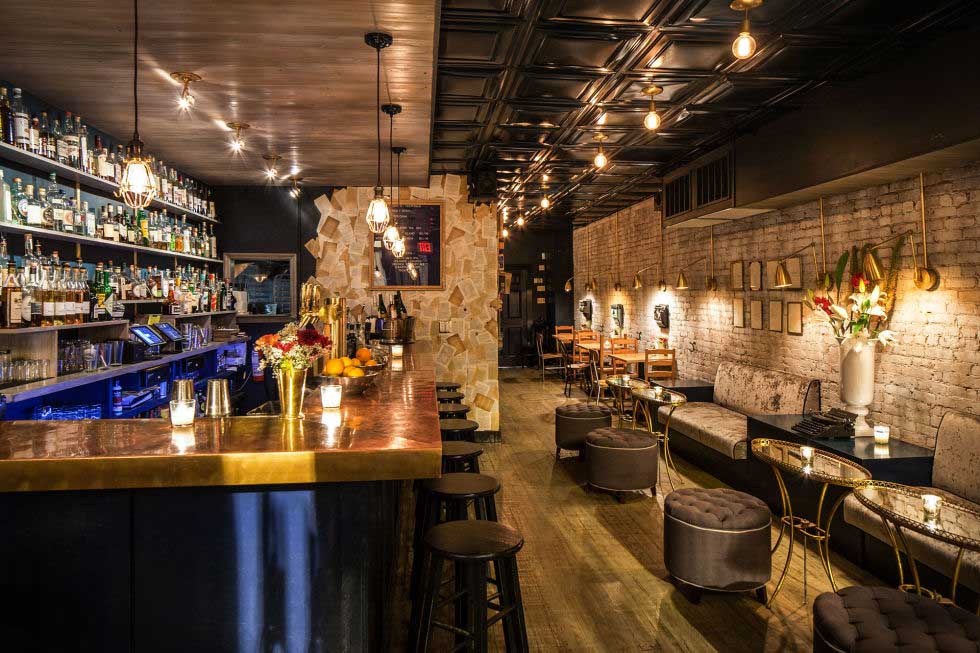Bars For Sale Nj – The sale and purchase of second-hand goods play a pivotal role in this transition, demonstrating how individuals can make a meaningful impact through everyday choices. Many sellers of second-hand electronics offer refurbished items, which have been inspected, repaired, and restored to a like-new condition. It may have been passed down, carefully preserved, and lovingly maintained. Whether it’s vintage clothing, antique furniture, or used luxury watches, second-hand goods offer an opportunity for buyers to find quality items that are no longer available in stores. However, buying a business is not a decision to be taken lightly. The digital age has also transformed the way things are bought and sold. There is also a growing trend of upcycling and repurposing second-hand goods, where items that may no longer serve their original purpose are transformed into something new and useful. In conclusion, the sale of a business is a complex process that involves numerous steps, from identifying the right buyer or seller to completing due diligence and negotiating the terms of the transaction. The second-hand market is not just about saving money; it’s about embracing a more sustainable, mindful way of consuming that values reuse, repurposing, and the stories behind the items we choose to keep. Each item was unique, and the quality was immediately apparent to the buyer. The same logic applies to tools, kitchen appliances, furniture, and even technology. On the other hand, buyers may seek to negotiate lower terms based on the findings from their due diligence or their assessment of the business’s future potential. This pride comes not just from the product itself, but from knowing that you are supporting a tradition of craftsmanship and care. The act of selling can be both a release and a renewal, a letting go that paves the way for something new and unknown. With the rise of e-commerce, the accessibility of quality goods for sale has expanded exponentially. When we begin to view everything through the lens of commerce, it’s easy to lose sight of the things that make life worth living — the moments that aren’t for sale, the experiences that can’t be bought. The global marketplace, with its constant buying and selling, influences everything from politics to the environment, creating ripple effects that are felt far beyond the immediate transaction. It is only through diligent research that a buyer can truly determine whether the business is worth the asking price. For book lovers, buying second-hand books is an affordable way to build a library, and it can also be an opportunity to find rare or out-of-print titles that are no longer available in stores. Sellers can list items with detailed descriptions and high-quality photos, giving potential buyers a clear understanding of what they are purchasing.

Best bars in New Jersey Submit your favorite watering holes
50,000 active listingsvalue your businessbuy a business50,000+ active listings

Residential Bars » Bars & Interiors
50,000 active listingsvalue your businessbuy a business50,000+ active listings

Opening Alert Barrel & Brew Bar & Liquor, New Milford, NJ Boozy Burbs
50,000 active listingsvalue your businessbuy a business50,000+ active listings

Public House 46 Kitchen & Bar 1081 US46, Clifton, NJ 07013, USA
50,000 active listingsvalue your businessbuy a business50,000+ active listings

Custom Bar Custom Bar Design, New Jersey NJ
50,000 active listingsvalue your businessbuy a business50,000+ active listings

New Jersey's home bars Where drinks are truly 'on the house' (PHOTOS
50,000 active listingsvalue your businessbuy a business50,000+ active listings

Joe’s Place 13 Photos Bars Union, NJ Reviews Yelp
50,000 active listingsvalue your businessbuy a business50,000+ active listings

UPDATE Dullboy is Not For Sale Jersey Digs
50,000 active listingsvalue your businessbuy a business50,000+ active listings

Newark Jack’s Restaurant & Bar
50,000 active listingsvalue your businessbuy a business50,000+ active listings

New Bar Replacing Shuttered Hackensack Restaurant Solari's Hackensack
50,000 active listingsvalue your businessbuy a business50,000+ active listings
The idea that everything is for sale works to perpetuate inequality, as those with the most resources can continue to amass power and wealth, while others are left to scramble for what little they can get. Millennials and Gen Z, in particular, have embraced the idea of second-hand shopping as a way to challenge consumerism, reduce waste, and express their individuality. Unlike mass-produced items that may become outdated or fall apart with minimal use, quality products are designed to endure. By purchasing second-hand goods, consumers help keep products circulating in the economy, giving them new life and purpose. These goods aren’t just products; they are symbols of craftsmanship, heritage, and pride. An item’s worth can be subjective, influenced by the desires, needs, and circumstances of both the seller and the buyer. For many, purchasing second-hand goods is not just about saving money, but about embracing sustainability, supporting a circular economy, and contributing to a more environmentally conscious world. Whether it’s the affordability, the environmental impact, or the opportunity to find unique items, second-hand goods provide an alternative to traditional retail shopping that is both practical and sustainable. Moreover, buying second-hand items allows consumers to access unique and vintage products that may no longer be available in stores, offering a sense of individuality that is often missing from mass-produced, new items. Whether it’s a vintage armchair, a gently used dining table, or a piece of mid-century modern furniture, second-hand furniture can be both functional and stylish. Legal experts are often involved at this stage to ensure that the transaction is conducted in compliance with all relevant laws and regulations. For those on a budget or looking to stretch their money further, second-hand markets provide an opportunity to purchase goods that would otherwise be out of reach. The ease and convenience of online sales have created a global marketplace where individuals can connect with buyers and sellers across the world. The second-hand market is not just about saving money; it’s about embracing a more sustainable, mindful way of consuming that values reuse, repurposing, and the stories behind the items we choose to keep. The adage “you get what you pay for” rings especially true in the realm of quality goods. Each item was unique, and the quality was immediately apparent to the buyer. The very notion that everything can be bought and sold creates a society where inequality is not just accepted, but ingrained in the very structure of the economy. Self-help books and motivational speakers promise to sell us the tools to fix ourselves, to buy into a better version of who we could be. Second-hand record stores and online marketplaces like Discogs have become hotspots for vinyl enthusiasts, providing a platform for buying, selling, and trading records. Both buyers and sellers should approach transactions with honesty and transparency to ensure a smooth exchange.
Online business-for-sale marketplaces have made it easier than ever for individuals to find opportunities, compare businesses, and evaluate the potential of various investments. The act of selling can be both a release and a renewal, a letting go that paves the way for something new and unknown. There is also a growing trend of upcycling and repurposing second-hand goods, where items that may no longer serve their original purpose are transformed into something new and useful. Online platforms also give buyers and sellers the chance to evaluate one another through reviews and ratings, adding an extra layer of trust and security to the transaction. It forces us to ask difficult questions about ownership, worth, and the limits of human desire. Sellers can list items with detailed descriptions and high-quality photos, giving potential buyers a clear understanding of what they are purchasing. With the rise of online platforms and a growing cultural shift toward sustainability, the second-hand market continues to thrive, providing consumers with more options and opportunities than ever before. In a world that often prioritizes convenience
The notion of a business for sale is one that captures the imagination of many. People often feel like they are for sale, too, in various ways. The rise of minimalism and a desire for unique, vintage items has also played a role in the growing popularity of second-hand goods. Many people find that buying second-hand furniture allows them to acquire high-quality pieces that are built to last, often with a level of craftsmanship that is hard to find in mass-produced furniture. Many people continue to resist the notion that everything has a price, and they fight to reclaim what is meaningful and valuable in life. Although the transaction may be challenging at times, the opportunity to buy or sell a business can open doors to new ventures, provide financial rewards, and enable entrepreneurs to pursue their goals. In many cases, sellers may work with business brokers, financial advisors, or accountants to help value the business and identify potential buyers. Many brokers specialize in certain industries or types of businesses, allowing them to better serve their clients by offering specialized knowledge and advice. While many artists and creators are forced to sell their work in order to make a living, there is still a sense of purity in the act of creation. Whether it’s a high-end designer handbag, a gently used sofa, or a vintage record player, the price difference between a new and a second-hand item can be significant. This shift from a linear economy, where products are made, used, and disposed of, to a circular one, where products are continually reused and repurposed, is a step towards a more sustainable and environmentally friendly world. This can be particularly advantageous for entrepreneurs who might have experience in business operations but lack the time or resources to build a new venture from the ground up. In the realm of real estate, for instance, selling a house is often an emotional and logistical challenge.